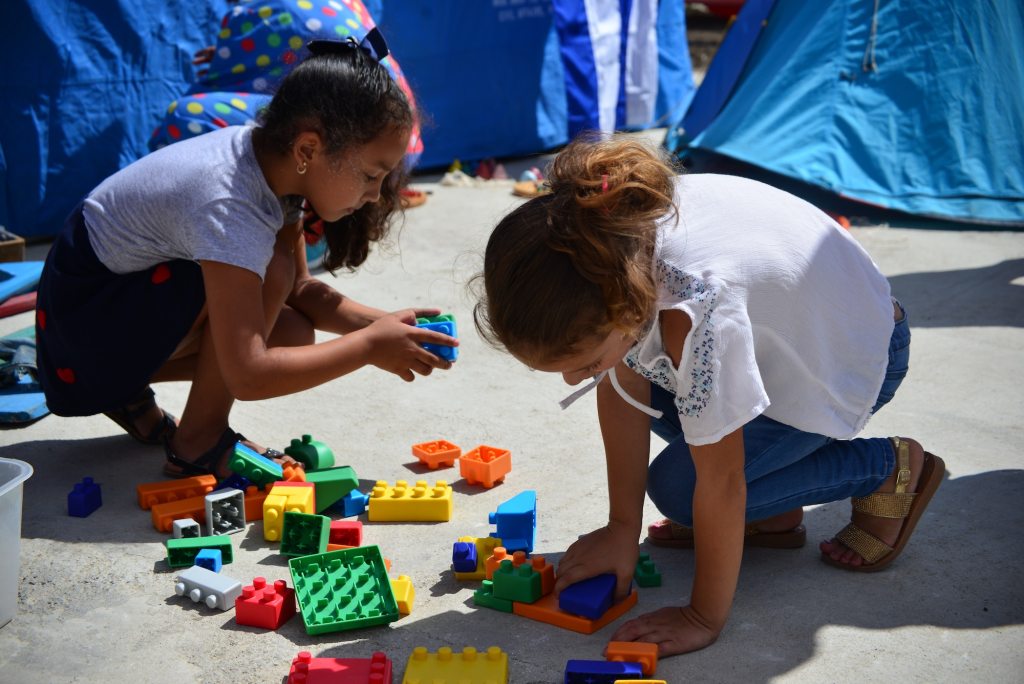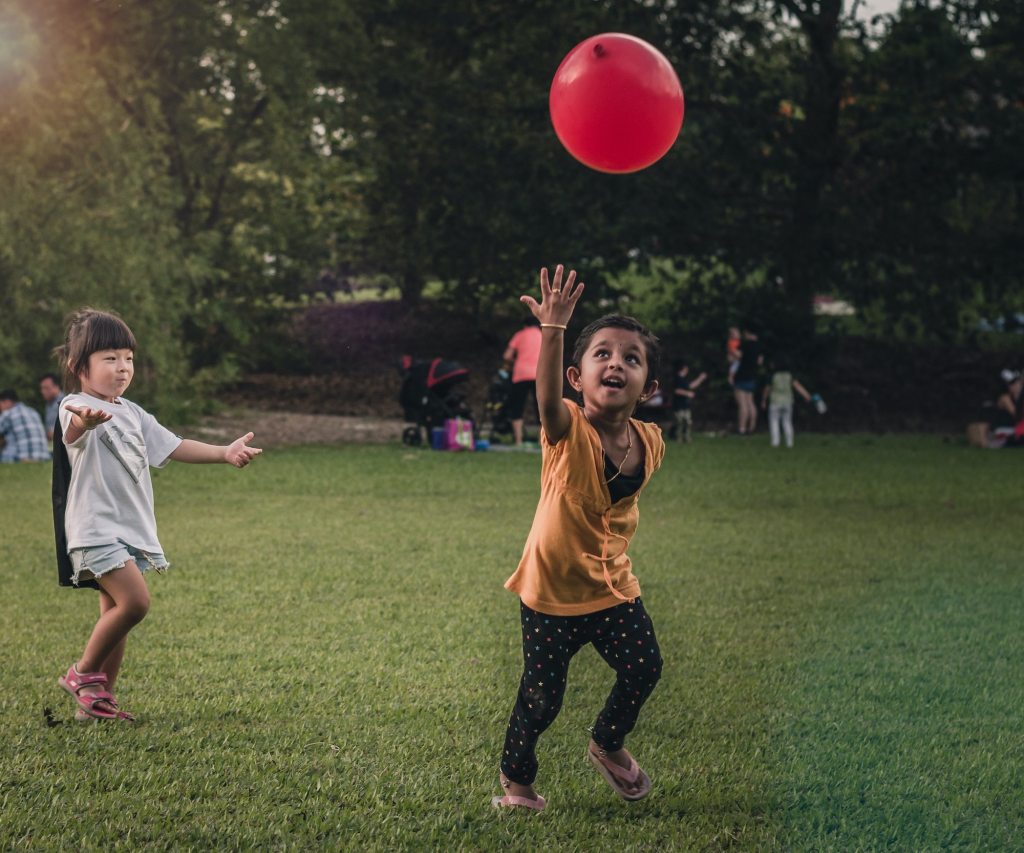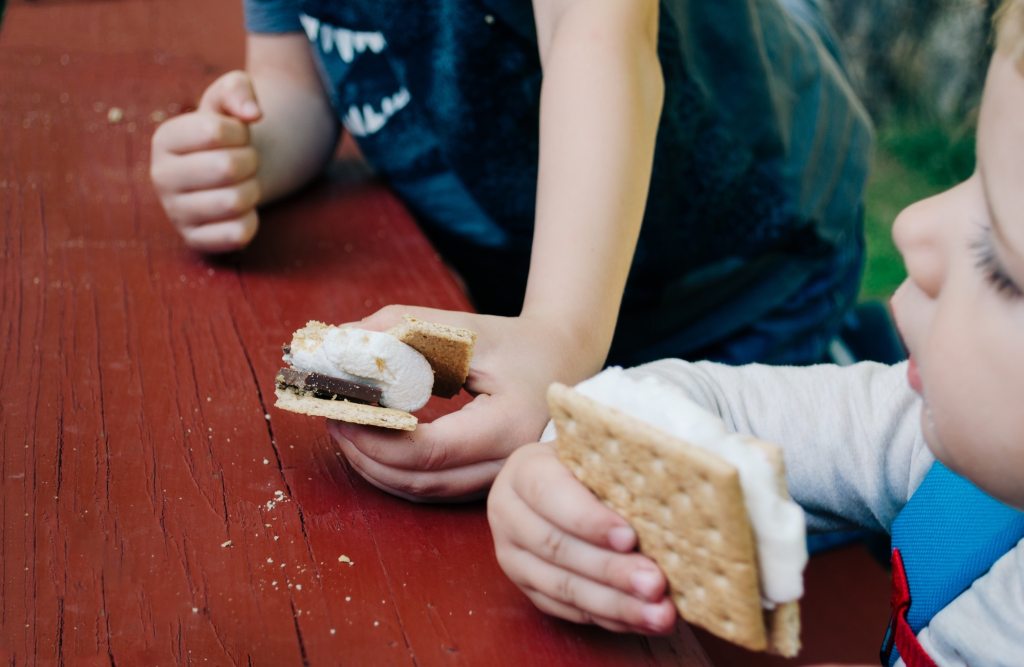Give your kids the opportunity to practice social skills in a casual environment and schedule your toddler’s play date. Take note, though: while they’re meant to be fun for both kids and parents, play dates can be stressful when your child’s behavior doesn’t meet your expectations. To avoid uncomfortable moments on your next outing, it’s helpful to go over play date etiquette with your little one. Even if they’re young, this helps them understand the rules and makes the play date fun for everyone.
Sharing is caring

Sharing is one of the biggest challenges of play dates. If you’re hosting friends at your home, it’s implied that your child will share toys with their friend. But don’t be surprised if this isn’t clear to your little one.
Rather than forcing them to share when you have company, have a quick talk with your child before their friend arrives. Let them know that having friends over means playing together and sharing toys. Ask your child if there are any special toys that they’re not willing to share. If so, simply put those toys away before the friend arrives. This avoids conflict and lets your child know that it’s OK to have certain treasures that we keep to ourselves.
Compromising and taking turns
Playing with others means compromising and taking turns — but this is a difficult concept for many young children. During the days leading up to the play date, try to practice taking turns with your child. Think of it as a warmup for the play date.
But don’t be surprised if your child forgets about their compromise skills on the actual play date. After all, they’re still little. If you notice that your child wants to call all the shots at the play date, gently remind them that taking turns is the nice thing to do.

If it’s your child who’s being bossed around, encourage them to teach their favorite games to their friend. This empowers your kid and is exciting for their pal.
When to intervene
The reality is that some play dates go smoothly, while others end up in fights. If your child’s play date is getting a little heated but there’s no physical aggression, don’t be so quick to intervene.
Play dates are also an opportunity for kids to learn about conflict resolution. Rather than jumping in to “fix” the problem, pay attention to how the kids are dealing with it. Many times, you’ll be pleasantly surprised.
If things escalate, use your judgment on when’s the right moment to intervene. Just remember to be fair to both kids. Try to keep things light and, whenever possible, save scolding for after the play date to avoid embarrassing your child in public.
Food manners

Many play dates include snacks or meals. Table manners are another good thing to practice at home so you don’t have to remind kids about etiquette in front of others.
If you know that the other parent will take food to share or if your little one is a guest at someone else’s home, remind them to be polite and open to trying new flavors. Explain that sharing meals is special and that it’s a chance to bond with another family.
Say “please” and “thank you”
This is something that doesn’t only apply to play dates. Who doesn’t love a polite kid? A child who says “please” and “thank you” always has more play date invites than they can handle!
Cleanup is a must
Whether your child goes to their friend’s house or the friend comes to you, cleanup should not be a parent task. A sure way to get kids to clean up is letting them know that the next play date depends on it. If they want to get together again, they must put toys away and clean up after themselves.
When it’s time to go, it’s time to go
Goodbye is tough when kids are having fun. To avoid tears at the end of the play date, give your child a fair warning five to 10 minutes before it’s time to go. This helps them manage their time, so you don’t have to drag them out of their friend’s house or the park.
A few tips for parents
Sometimes, parents stress out and expect kids to behave perfectly in front of others. Here are some tips to make play dates easier on you:
- Avoid groups of three. This is always a challenging number and one kid inevitably feels left out.
- If you’re hosting, plan some activities ahead of time to avoid boredom and keep kids engaged.
- But don’t micromanage. Offer game suggestions and then let the kids do their thing.
- Don’t take a hungry child on a play date. They’ll be irritable and more likely to have trouble playing with others.
- Plan play dates around nap time. Play, lunch, and nap are the perfect combo for toddlers and preschoolers.
- Be on time. Remember that families have other plans and may be on a schedule.
- Ask about allergies anytime you’re having a new friend over. Don’t assume that the child knows.
- Especially with younger kids, keep play dates under two hours to avoid tired and fussy children.
The most important thing to remember about play dates is that they should be fun for the kids. While there are certain rules to follow, keep in mind that they’re children and they get excited about hanging out with friends. Don’t expect them to behave perfectly at all times. As long as they’re safe and enjoying themselves, your work is done.


